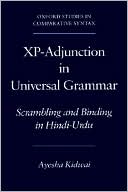Category Books
- Fiction Books & Literature
- Graphic Novels
- Horror
- Mystery & Crime
- Poetry
- Romance Books
- Science Fiction & Fantasy
- Thrillers
- Westerns
- Ages 0-2
- Ages 3-5
- Ages 6-8
- Ages 9-12
- Teens
- Children's Books
- African Americans
- Antiques & Collectibles
- Art, Architecture & Photography
- Bibles & Bible Studies
- Biography
- Business Books
- Christianity
- Computer Books & Technology Books
- Cookbooks, Food & Wine
- Crafts & Hobbies Books
- Education & Teaching
- Engineering
- Entertainment
- Foreign Languages
- Game Books
- Gay & Lesbian
- Health Books, Diet & Fitness Books
- History
- Home & Garden
- Humor Books
- Judaism & Judaica
- Law
- Medical Books
- New Age & Spirituality
- Nonfiction
- Parenting & Family
- Pets
- Philosophy
- Political Books & Current Events Books
- Psychology & Psychotherapy
- Reference
- Religion Books
- Science & Nature
- Self Improvement
- Sex & Relationships
- Social Sciences
- Sports & Adventure
- Study Guides & Test Prep
- Travel
- True Crime
- Weddings
- Women's Studies
Xp-Adjunction in Universal Grammar: Scrambling and Binding in Hindi-Urdu »

Authors: Ayesha Kidwai
ISBN-13: 9780195132519, ISBN-10: 0195132513
Format: Hardcover
Publisher: Oxford University Press, USA
Date Published: May 2000
Edition: (Non-applicable)
Author Biography: Ayesha Kidwai
Jawaharlal Nehru University, New Delhi
Book Synopsis
One of the most hotly debated phenomena in natural language is that of leftward argument scrambling. This book investigates the properties of Hindi-Urdu scrambling to show that it must be analyzed as uniformly a focality-driven XP-adjunction operation. It proposes a novel theory of binding and coreference that not only derives the coreference effects in scrambled constructions, but has important consequences for the proper formulation of binding, crossover, reconstruction, and representational economy in the minimalist program. The book will be of interest not only to specialists in Hindi-Urdu syntax and/or scrambling, but to all students of generative syntax.
Table of Contents
| 1 | Issues in the Study of Scrambling | 3 |
| 1.1 | Empirical Issues | 3 |
| 1.2 | Some Minimalist Background | 9 |
| 1.3 | Theoretical Issues | 16 |
| 1.4 | Organization | 19 |
| 2 | Scrambling: Syntactic Properties | 22 |
| 2.1 | Scrambling Is Not NP-movement | 24 |
| 2.2 | Scrambling Is Not WH-movement | 34 |
| 2.3 | Scrambling Is Not Topicalization | 39 |
| 2.4 | Scrambling Is Not QR | 50 |
| 2.5 | Scrambling Is XP-Adjunction | 53 |
| 3 | The Structure of the UG Clause | 60 |
| 3.1 | Locating the AGR-oP Projection | 60 |
| 3.2 | Ditransitives in the Minimalist Program | 67 |
| 4 | Binding and Coreference in UG | 82 |
| 4.1 | Principle A and Reflexive Binding | 83 |
| 4.2 | Principle B and Pronominal Binding | 91 |
| 4.3 | Binding and Conference in Minimalism | 96 |
| 5 | Scrambling, Focus, and Specificity | 114 |
| 5.1 | Scrambling and Positional Focus | 114 |
| 5.2 | Coreference with Adjoined Positions | 124 |
| 5.3 | Scrambling and Specificity | 130 |
| 6 | XP-Adjunction in UG | 138 |
| 6.1 | XP-Adjunction and Global Economy | 138 |
| 6.2 | The Economy of Representation | 142 |
| 6.3 | The Economy of Derivation | 146 |
| 6.4 | The L-/L-Bar Distinction | 149 |
| Notes | 153 | |
| Bibliography | 169 | |
| Index | 176 |
Subjects
 Hindi and Other Indic Languages
Hindi and Other Indic Languages  Urdu language
Urdu languageForeign Languages
 All Foreign Languages
All Foreign Languages  Indic Languages - Reference
Indic Languages - ReferenceNonfiction
 Philosophy
Philosophy  Linguistics & Semiotics
Linguistics & SemioticsPhilosophy
 Linguistics & Semiotics
Linguistics & Semiotics  Language Families
Language FamiliesPhilosophy
 Linguistics & Semiotics
Linguistics & Semiotics  Syntax
SyntaxReference
 Learning Languages
Learning Languages  Indic Languages - Reference
Indic Languages - ReferenceNonfiction
 Reference
Reference  Learning Languages
Learning LanguagesReference
 Foreign-language Study Aids & Dictionaries
Foreign-language Study Aids & Dictionaries  Hindi and Other Indic Languages
Hindi and Other Indic LanguagesReference
 Foreign-language Study Aids & Dictionaries
Foreign-language Study Aids & Dictionaries  All Foreign Languages
All Foreign Languages
